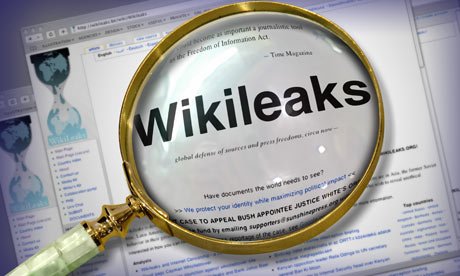
Wikileaks has published a new collection of more than 1.7 million of US diplomatic and intelligence documents from the 1970s.
The documents include allegations that former Indian PM Rajiv Gandhi was a middleman in an arms deal and the first impressions of eventual British PM Margaret Thatcher.
The records have not been leaked and are available to view at the US national archives.
Wikileaks says it is releasing the documents in searchable form.

Much of the work has been carried out by the website’s founder Julian Assange while he has been holed up at the Ecuadorean embassy in London.
Julian Assange took refuge in the embassy last June to avoid extradition to Sweden, where he is wanted for questioning over allegations that he assaulted two female ex-Wikileaks supporters in 2010.
He denies the allegations, and has said they are politically motivated and part of a smear campaign against him and his whistle-blowing website.
Wikileaks made headlines around the world in 2010 after it released more than 250,000 leaked US cables.
Julian Assange told Britain’s Press Association that the latest collection, entitled the Public Library of US Diplomacy (PlusD), reveal the “vast range and scope” of US diplomatic activity around the world.
The data comprises diplomatic cables, intelligence reports and congressional correspondence running from the beginning of 1973 to the end of 1976.
Much of the correspondence is either written by or sent to Henry Kissinger, who was US Secretary of State and National Security Adviser during that period.
It includes claims, being widely reported by the Indian media, that Rajiv Gandhi – of India’s most famous political family – was employed by the Swedish firm Saab-Scandia as it tried to sell its Viggen fighter jet to India.
Rajiv Gandhi was working as a commercial pilot and not in politics himself at the time.
A US diplomat is quoted in a February 1976 cable as saying: “We would have thought a transport pilot is not the best expert to rely upon in evaluating a fighter plane, but then we are speaking of a transport pilot who has another and perhaps more relevant qualification.”
Rajiv Gandhi became India’s prime minister in 1984 and was assassinated in 1991.
Saab-Scandia did not win its bid to sell Viggen fighter jets to India; the contract went to Britain’s Jaguar planes.
Another cable, dated February 1975, from London sets out “some first impressions” of new leader of the Conservative Party, Margaret Thatcher.
The diplomat wrote that “she has a quick, if not profound, mind, and works hard to master the most complicated brief”.
Margaret Thatcher is “crisp and a trifle patronizing” with the media, but “honest and straight-forward” with her colleagues, “if not excessively considerate of their vanities”, the diplomat wrote.
“The personification of a British middle class dream come true,” she is the “genuine voice of a beleaguered bourgeoise [sic], anxious about its eroding economic power and determined to arrest society’s seemingly inexorable trend towards collectivism”, the cable said.
The diplomat noted she had “acquired a distinctively upper middle class personal image”, which might damage her chances of becoming prime minister, but said she should not be underestimated.
[youtube eXSX-6dHrZ0]